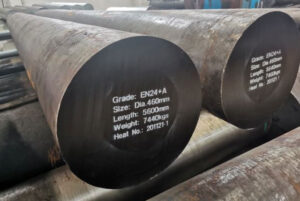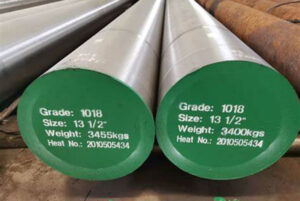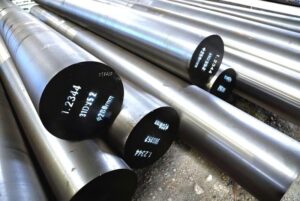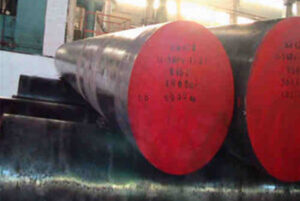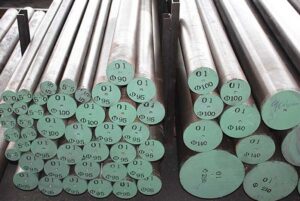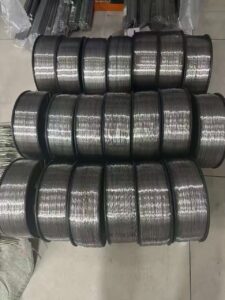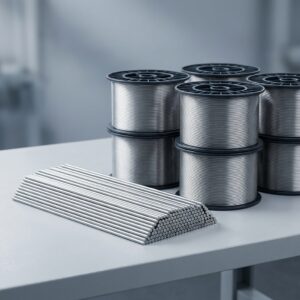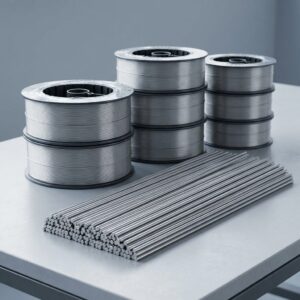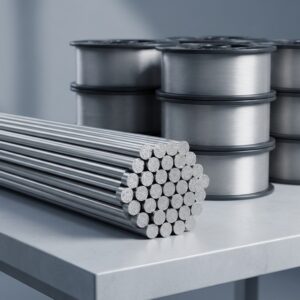In the realm of engineering, where projects demand exceptional resilience and performance, special steels emerge as the champions. Imagine a material that can withstand immense pressure, shrug off wear and tear, and hold its shape under heavy loads. That’s the magic of Special Steel 30CrNiMo8/1.6580, a special alloy steel that’s built for strength and toughness.
This article delves deep into the world of 30CrNiMo8/1.6580, dissecting its composition, properties, applications, and everything in between. So, buckle up and get ready to explore the remarkable world of this exceptional steel!
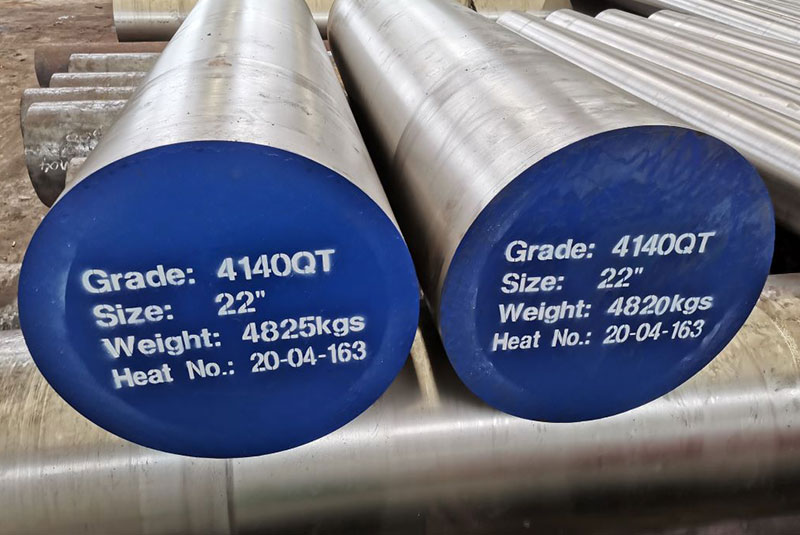
Chemical Composition of Special Steel 30CrNiMo8/1.6580
Imagine steel as a recipe, with each element playing a crucial role in its final properties. 30CrNiMo8/1.6580 follows a specific chemical recipe, and understanding its ingredients is key to appreciating its capabilities.
| Nguyên tố | Percentage (wt%) | Role |
|---|---|---|
| Carbon (C) | 0.26 – 0.34 | Provides the foundation for strength and hardness. |
| Manganse (Mn) | 0.5 – 0.8 | Enhances hardenability and improves machinability. |
| Crôm (Cr) | 1.8 – 2.2 | Contributes to corrosion resistance and high-temperature strength. |
| Niken (Ni) | 1.8 – 2.2 | Improves toughness and ductility, especially at low temperatures. |
| Molypden (Mo) | 0.3 – 0.5 | Further enhances hardenability and high-temperature strength. |
| Silicon (Si) | Up to 0.40 | Deoxidizes the steel during processing and improves strength. |
| Phốt pho (P) | Max 0.035 | Present in small amounts to improve machinability. |
| Lưu huỳnh (S) | Max 0.035 | Similar to phosphorus, helps with machinability but needs to be kept low for optimal properties. |
As you can see, 30CrNiMo8/1.6580 is a carefully balanced blend of elements, each contributing to its exceptional strength, toughness, and resistance to various challenges.
Các tính chất cơ học của Special Steel 30CrNiMo8/1.6580
The true test of a steel lies in its mechanical properties – its ability to withstand various stresses and strains. Let’s delve into the impressive mechanical performance of 30CrNiMo8/1.6580:
| Tài sản | Typical Value | Units |
|---|---|---|
| Độ bền kéo | 800 – 1000 | MPa |
| Độ bền kéo | 650 – 850 | MPa |
| Độ giãn dài khi đứt | 14 – 18 | % |
| Reduction of Area | 40 – 50 | % |
| Charpy Impact Toughness (20°C) | Min. 40 | J |
These numbers paint a clear picture: 30CrNiMo8/1.6580 is a real powerhouse. Its high tensile and yield strength translate to exceptional resistance to pulling and bending forces. The decent elongation and reduction of area indicate good ductility, meaning it can deform slightly under stress without breaking. This comes in handy for applications requiring some flexibility.
The Charpy Impact Toughness value tells us how well the steel can handle a sudden, high-force impact. Here, the minimum value of 40 J at room temperature (20°C) indicates good resistance to shock and impact, making it suitable for demanding applications.
Understanding the Nuances: It’s important to remember that these are typical values, and the exact properties can vary depending on the specific heat treatment process used. However, they provide a solid foundation for understanding the capabilities of 30CrNiMo8/1.6580.
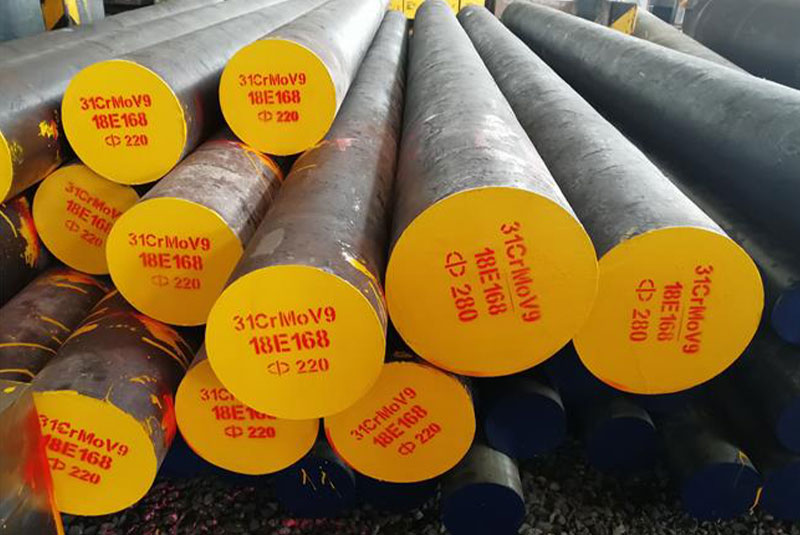
Applications of Special Steel 30CrNiMo8/1.6580
With its impressive strength and toughness, 30CrNiMo8/1.6580 finds applications in various demanding industries. Here are some key areas where it shines:
| Ngành công nghiệp | Ứng dụng | Why 30CrNiMo8/1.6580 is a Great Choice |
|---|---|---|
| Ô tô | Bánh răng, trục, trục khuỷu, thanh truyền | Can handle high loads, resists wear and tear, good for critical engine components. |
| Construction Equipment | Excavator parts, crane components, hydraulic cylinders | Offers strength for heavy lifting applications, resists bending and deformation. |
| Dầu khí | Drill pipes, wellhead components, downhole tools | Provides good corrosion resistance and high-temperature strength for harsh downhole environments. |
| Mining & Quarrying | Crusher jaws, wear plates, excavator buckets | Exceptional wear resistance allows it to withstand harsh abrasive environments. |
| Agriculture | Shafts for agricultural machinery, gears, plows | Durable and can handle the demanding conditions faced by farm equipment. |
| General Engineering | Gears, shafts, pins, fasteners | Versatile material suitable for a wide range of components requiring strength and reliability. |
Beyond the List: While the table highlights some key applications, 30CrNiMo8/1.6580’s versatility extends beyond these sectors. Its ability to be quenched and tempered allows engineers to tailor its properties for specific needs. This makes it a valuable option for various industrial applications where strength, toughness, and good machinability are essential.
The Trade-off: It’s important to remember that no material is perfect. While 30CrNiMo8/1.6580 boasts impressive strength, it might not be the best choice for every situation. Compared to some other high-alloy steels, it might offer slightly less corrosion resistance. Additionally, for applications requiring extreme lightweight designs, there might be better options available.
However, for a vast array of industrial needs, 30CrNiMo8/1.6580 strikes a remarkable balance between strength, toughness, machinability, and cost-effectiveness. This makes it a highly sought-after material for engineers seeking a reliable and versatile performer.
Xử lý nhiệt của Special Steel 30CrNiMo8/1.6580
Heat treatment plays a crucial role in unlocking the full potential of 30CrNiMo8/1.6580. By carefully manipulating temperature and cooling rates, we can significantly alter its mechanical properties. Here’s a breakdown of a typical heat treatment process:
- Austenitizing: The steel is heated to a specific temperature (typically around 820-880°C) to transform its microstructure into a single-phase austenite structure. This enhances its hardenability.
- Quenching: The steel is rapidly cooled, often using water or oil, to trap the high-temperature austenite structure. This rapid cooling results in a harder but more brittle martensite microstructure.
- Tempering: The steel is then reheated to a lower temperature (typically between 540-660°C) and held for a specific time. This process tempers the martensite, reducing its brittleness and improving its toughness while still maintaining good strength.
Tailoring Properties: By adjusting the specific temperatures and times involved in each stage, we can fine-tune the final properties of 30CrNiMo8/1.6580. For instance, a higher tempering temperature will result in a tougher but slightly less strong steel. Conversely, a lower tempering temperature will prioritize strength over toughness.
Expertise Matters: Heat treatment is a complex process, and achieving the desired properties requires expertise and specialized equipment. It’s crucial to rely on experienced heat treatment professionals to ensure optimal performance from 30CrNiMo8/1.6580.

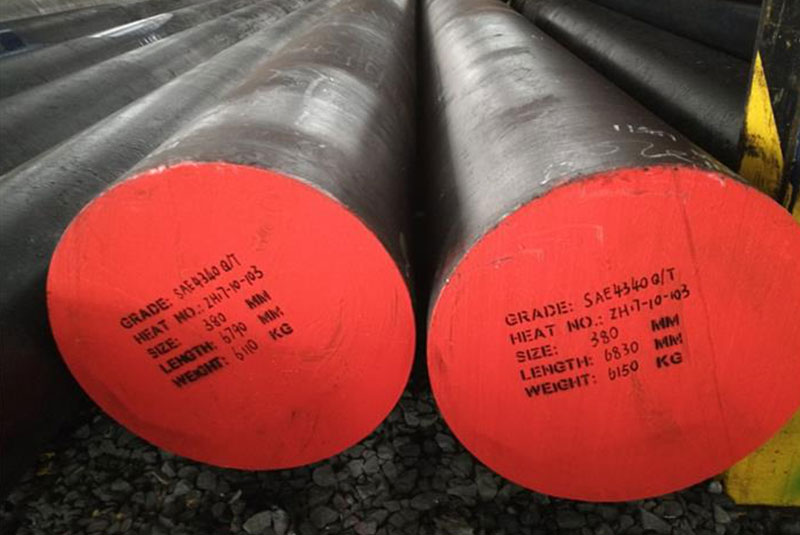
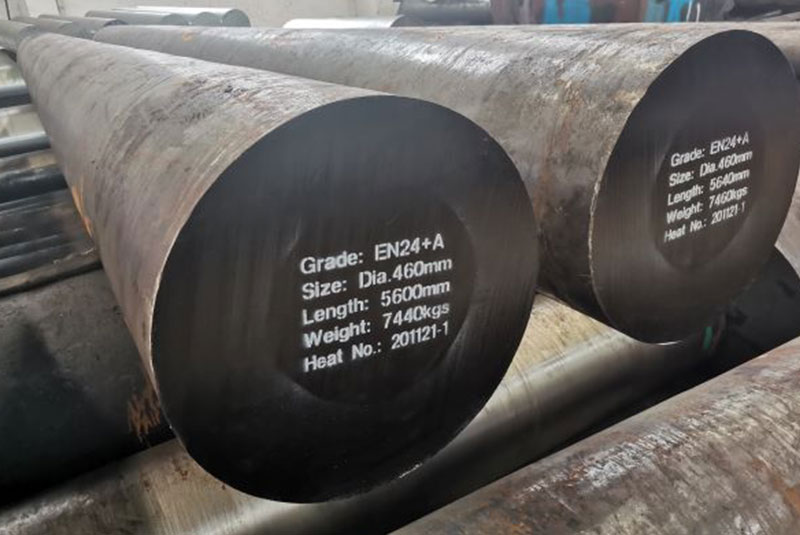

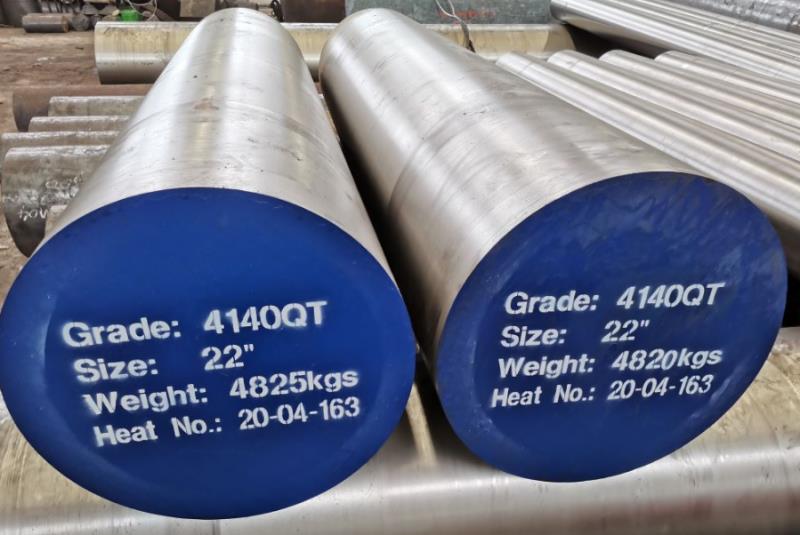
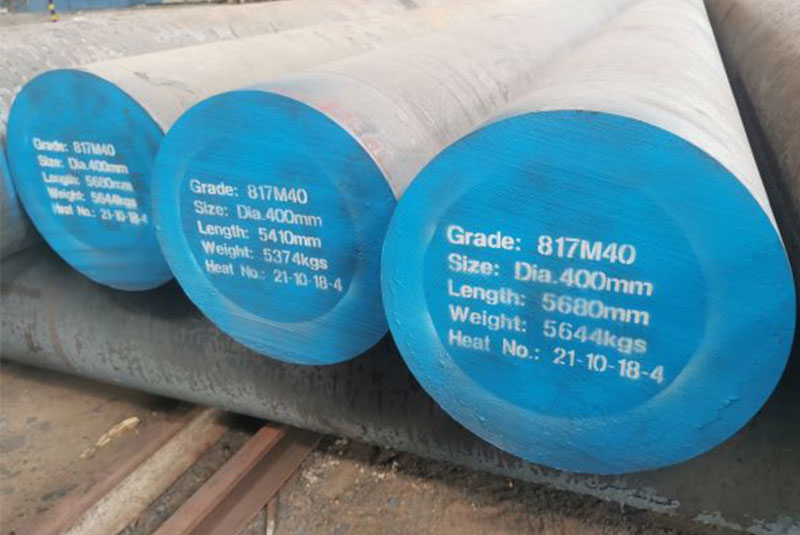
Suppliers and Pricing of Special Steel 30CrNiMo8/1.6580
Acquiring 30CrNiMo8/1.6580 involves finding reliable suppliers who can provide the specific shapes, sizes, and heat treatment conditions required for your project. Here are some factors to consider:
- Reputation: Choose a supplier with a proven track record of delivering high-quality steel products.
- Material Certifications: Ensure the supplier provides proper certifications for the material, guaranteeing its composition and properties.
- Capability: Look for a supplier who can offer the specific shapes and sizes you need, along with any required heat treatment services.
- Pricing: Pricing for 30CrNiMo8/1.6580 can vary depending on the supplier, quantity, and desired specifications. It’s always wise to obtain quotes from multiple suppliers to ensure you’re getting a competitive price.
A ballpark figure: While exact pricing can fluctuate, expect to pay somewhere in the range of $2-5 per kilogram for raw material (round bars, per kilogram for raw material (round bars, plates) of 30CrNiMo8/1.6580. Keep in mind that this is just a starting point, and the final cost will depend on the factors mentioned above. Additionally, machining, heat treatment, and other processing costs will add to the overall price per finished component.
Beyond Price: When choosing a supplier, it’s essential to consider not just price but also factors like service, responsiveness, and technical expertise. A reliable supplier can provide valuable guidance on material selection, heat treatment options, and ensure timely delivery to meet your project deadlines.
Advantages and Disadvantages of Special Steel 30CrNiMo8/1.6580
Like any material, 30CrNiMo8/1.6580 has its own set of pros and cons. Here’s a balanced perspective to help you decide if it’s the right choice for your project:
| Ưu điểm | Nhược điểm |
|---|---|
| High Strength & Toughness: Provides exceptional resistance to pulling, bending, and impact forces. | Moderately Corrosion Resistant: While offering some corrosion resistance, it might not be ideal for highly corrosive environments compared to some high-alloy steels. |
| Good Machinability: Relatively easy to machine compared to some other high-strength steels. | Not the Lightest Option: There are lighter weight steel options available for applications where weight is a critical factor. |
| Versatility: Suitable for a wide range of applications across various industries. | Requires Proper Heat Treatment: Achieving optimal properties relies on proper heat treatment expertise and equipment. |
| Cost-Effective: Offers a good balance between performance and cost compared to some high-alloy steels. |
The Final Verdict: The decision of whether 30CrNiMo8/1.6580 is the right choice for your project depends on your specific needs. If your application demands exceptional strength, toughness, and good machinability at a reasonable cost, then 30CrNiMo8/1.6580 is a strong contender. However, if factors like superior corrosion resistance or minimal weight are paramount, you might need to explore alternative materials.
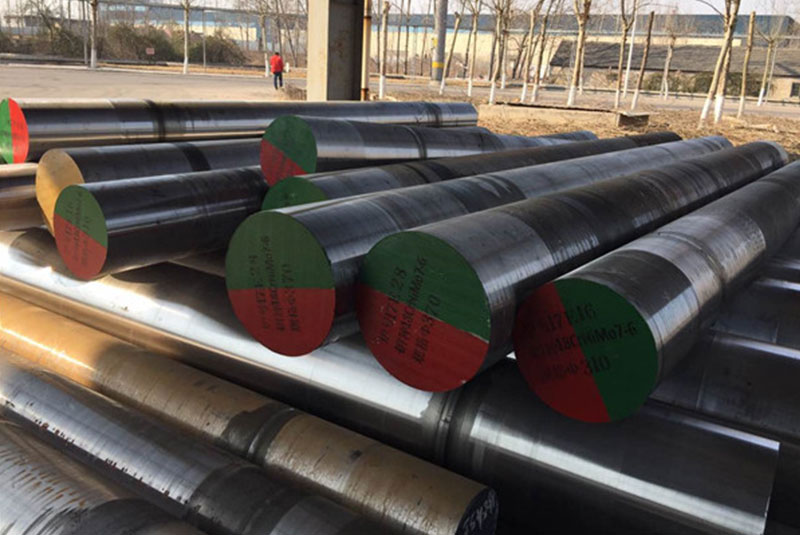
Câu hỏi thường gặp
Q: What are some alternative steels to 30CrNiMo8/1.6580?
A: Depending on your specific requirements, some alternative steels to consider include:
- 4140 Chromoly Steel: Offers similar strength and toughness with slightly better machinability.
- SAE 1045: A good choice for applications requiring a balance of strength, machinability, and affordability.
- AISI 316 Stainless Steel: Provides superior corrosion resistance compared to 30CrNiMo8/1.6580, but with lower overall strength.
Q: Can 30CrNiMo8/1.6580 be welded?
A: Yes, 30CrNiMo8/1.6580 can be welded. However, proper preheating and post-weld heat treatment are crucial to maintain its mechanical properties and avoid weld cracking. Consulting with a qualified welding professional is recommended.
Q: How does 30CrNiMo8/1.6580 compare to cast iron in terms of strength?
A: While cast iron can be very strong in compression, 30CrNiMo8/1.6580 generally offers superior tensile strength and overall toughness. Cast iron might be a better choice for applications requiring high compressive strength and good vibration dampening.
Q: Is 30CrNiMo8/1.6580 available in different shapes and sizes?
A: Yes, 30CrNiMo8/1.6580 is typically available in various shapes like round bars, plates, squares, and hexagons. The specific sizes offered will vary depending on the supplier.
In Conclusion
Special Steel 30CrNiMo8/1.6580 stands out as a reliable and versatile material for countless industrial applications. Its impressive strength, toughness, and machinability make it a valuable asset for engineers seeking a dependable performer. By understanding its properties, applications, heat treatment requirements, and supplier considerations, you can make informed decisions about whether 30CrNiMo8/1.6580 is the right fit for your next project.

